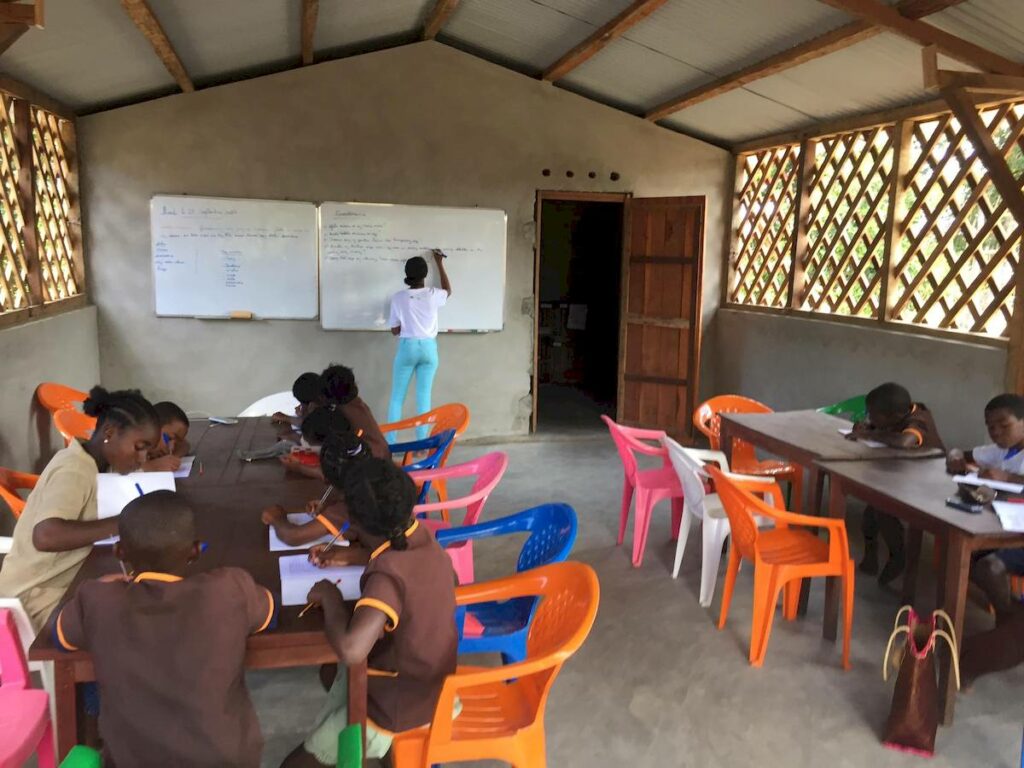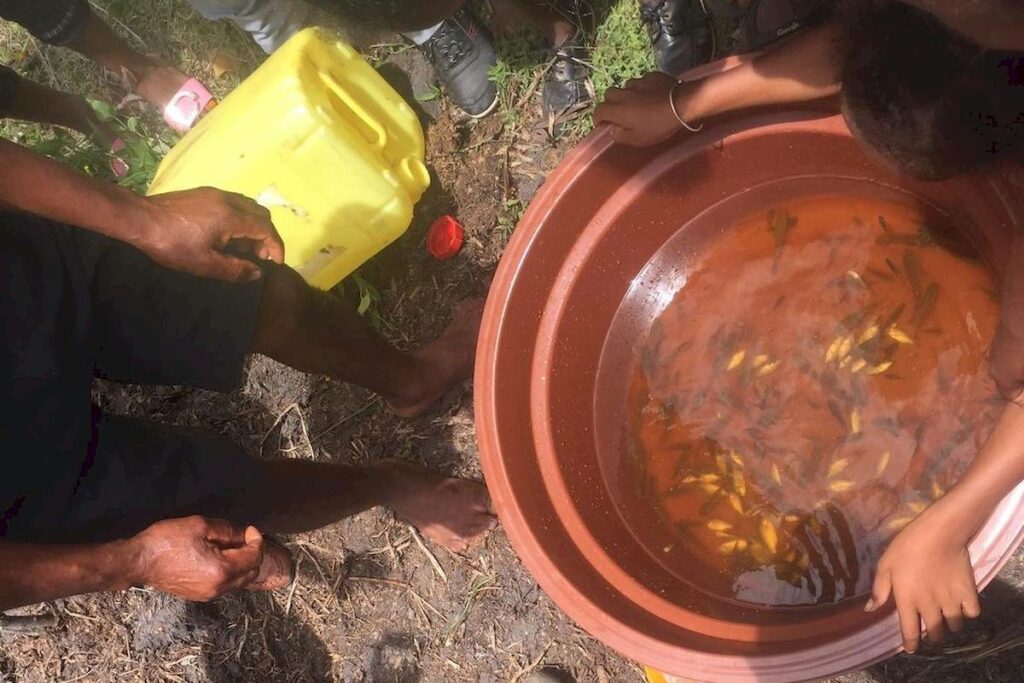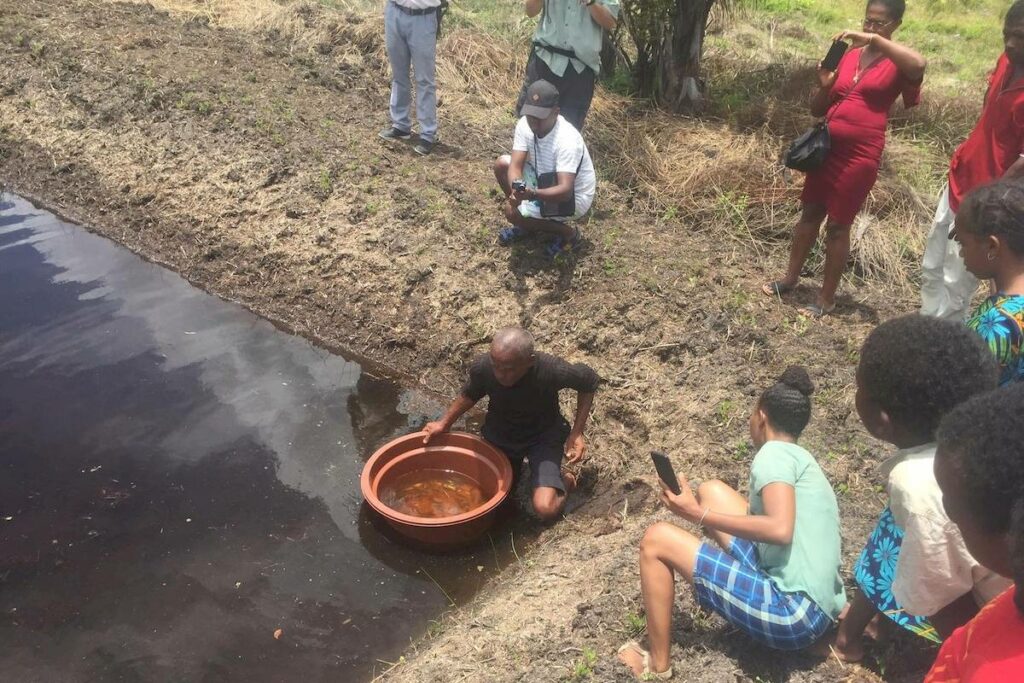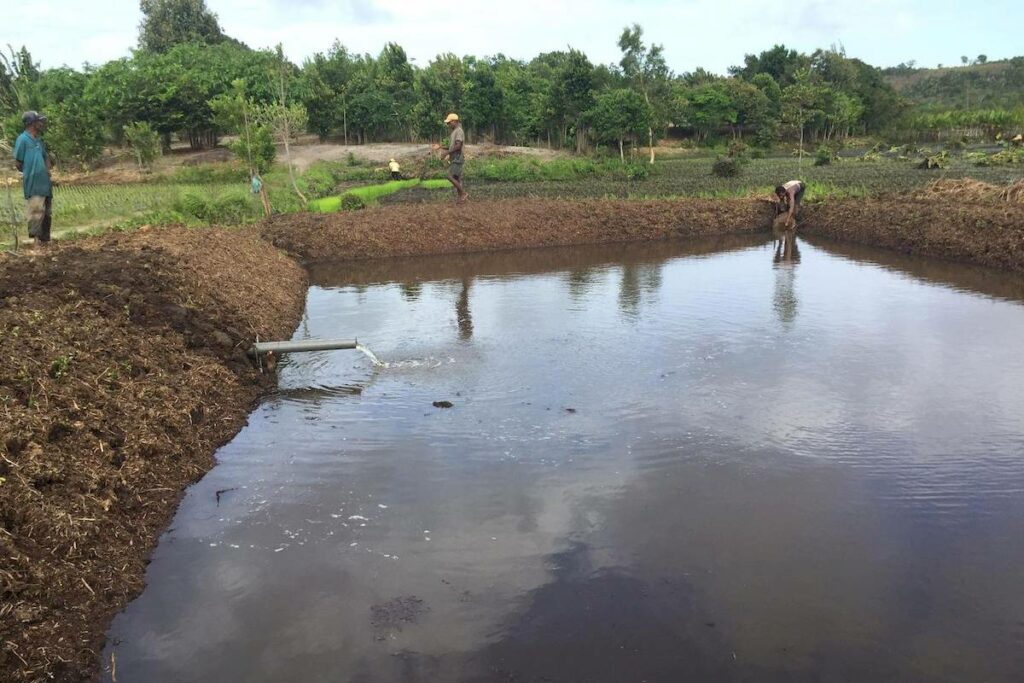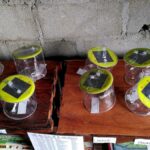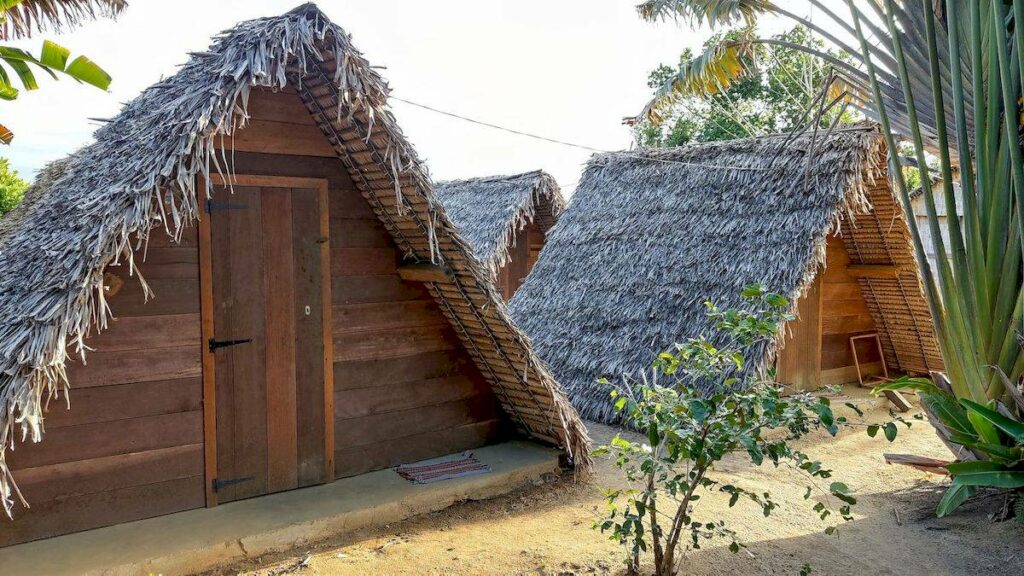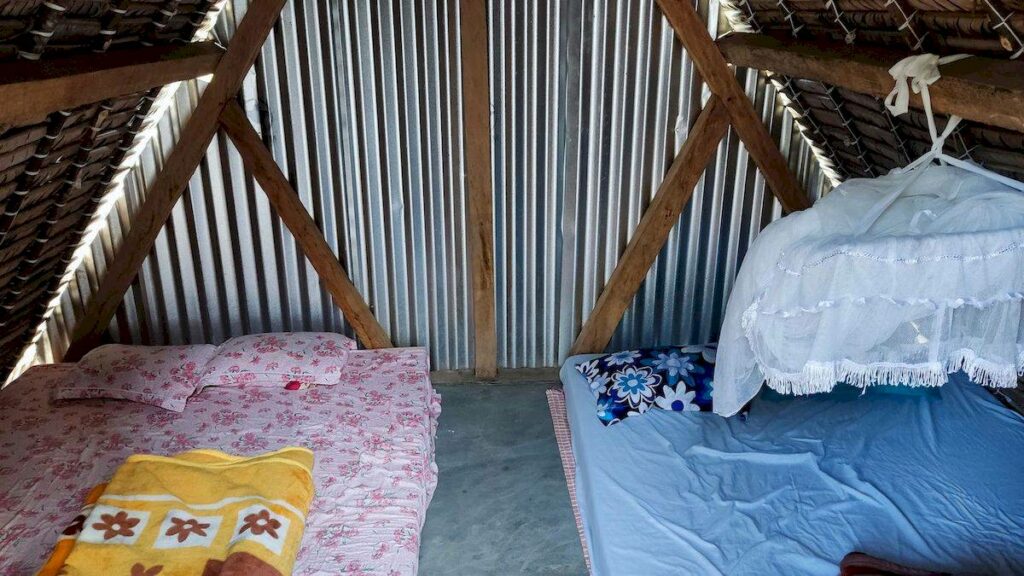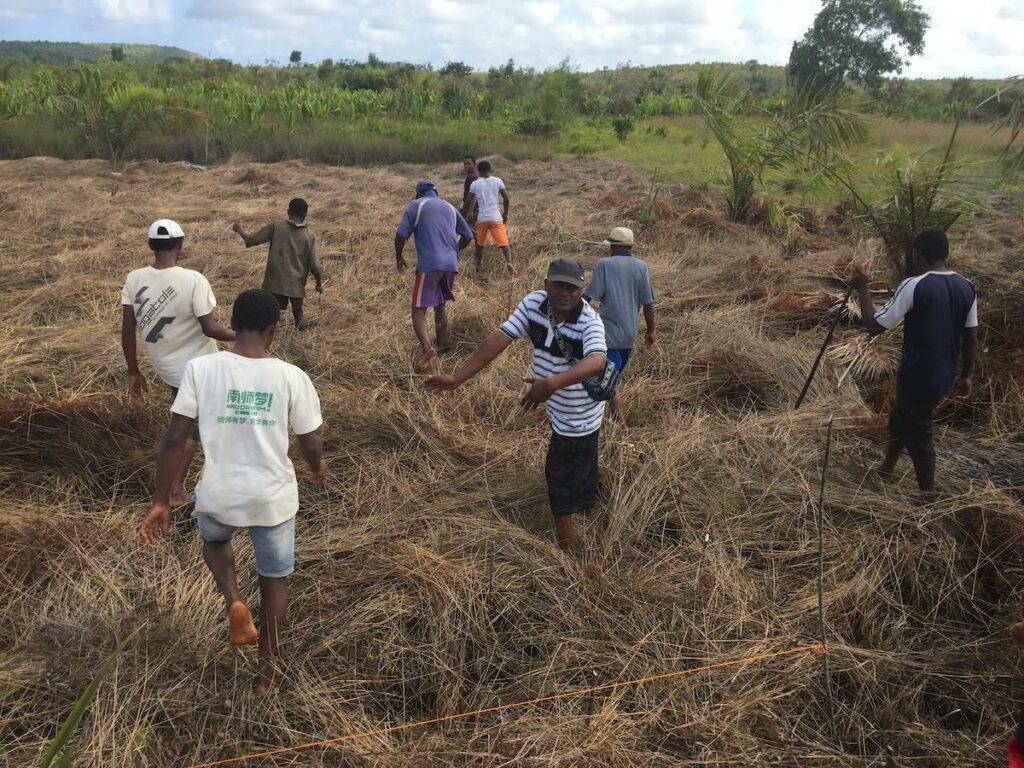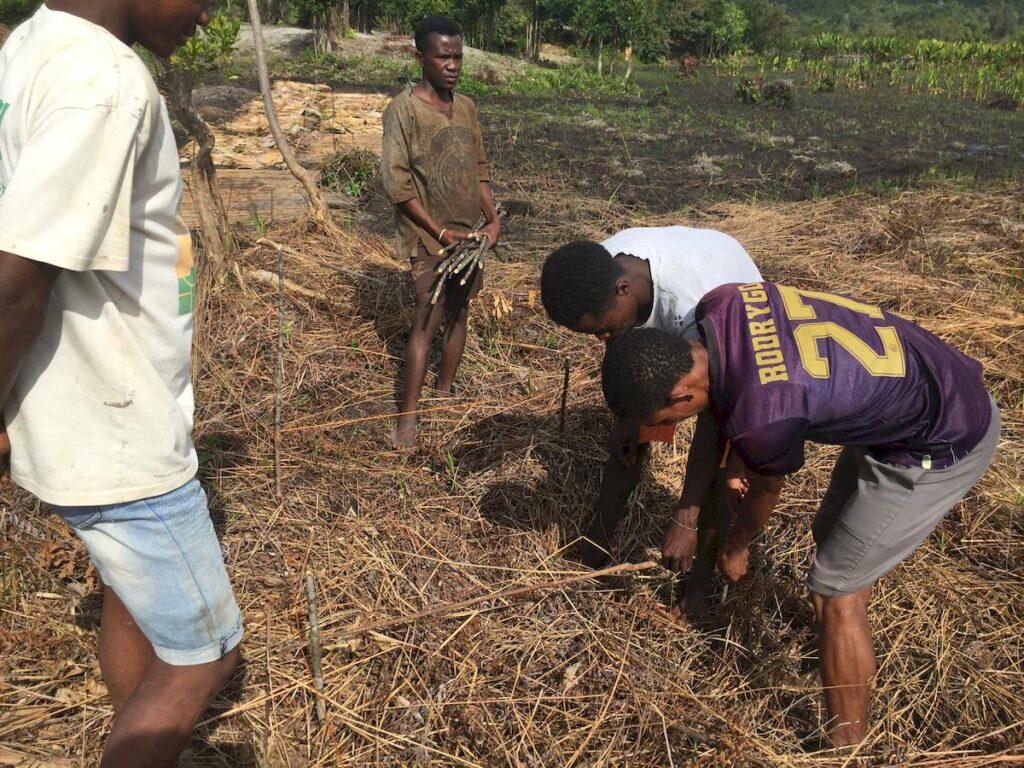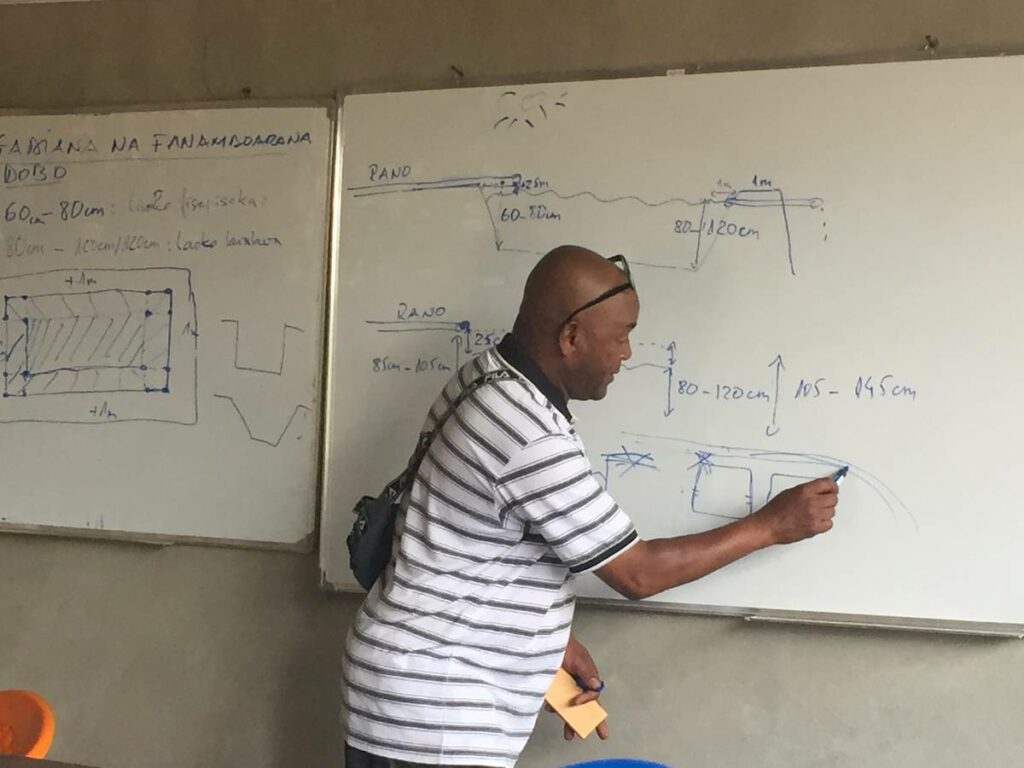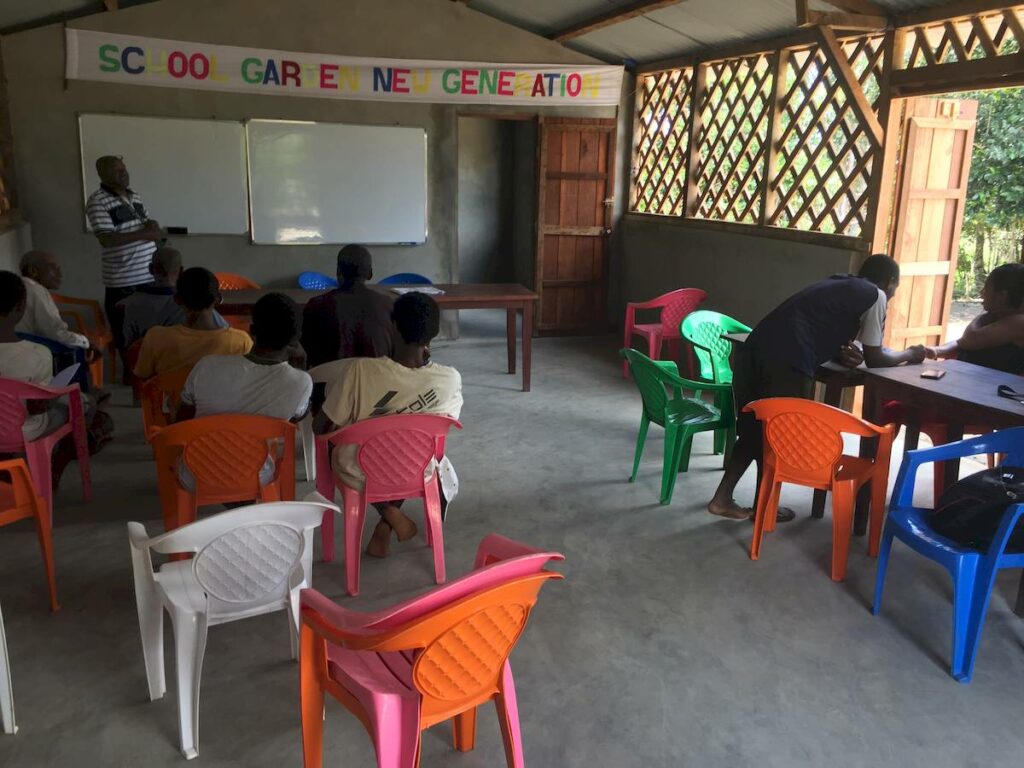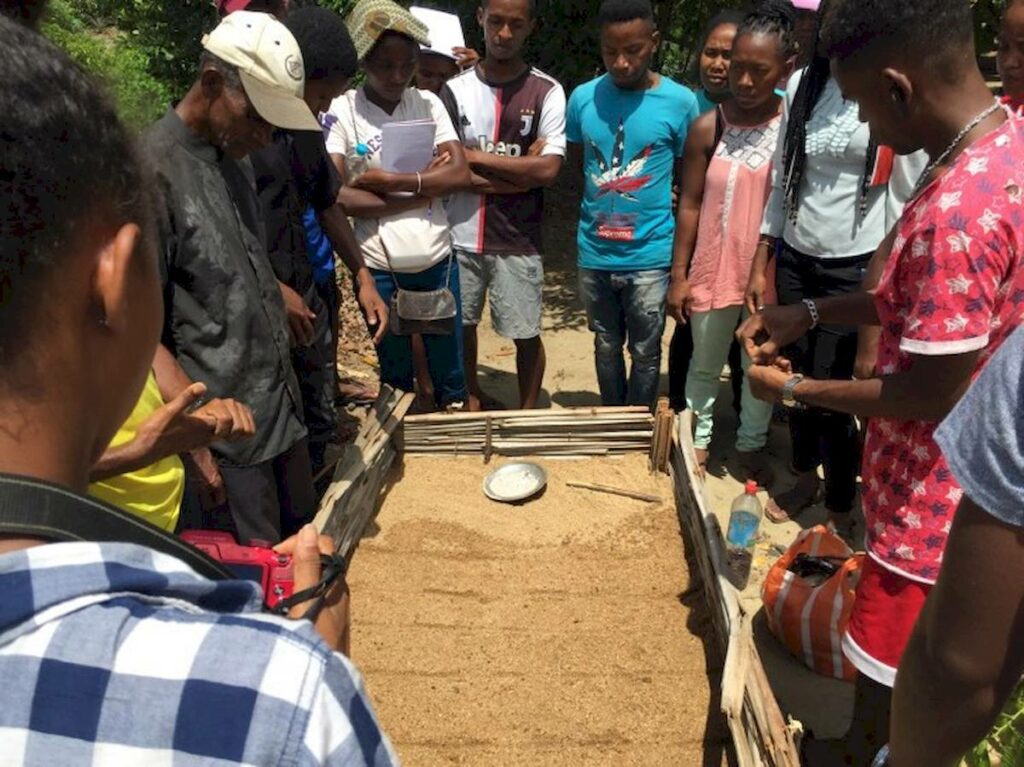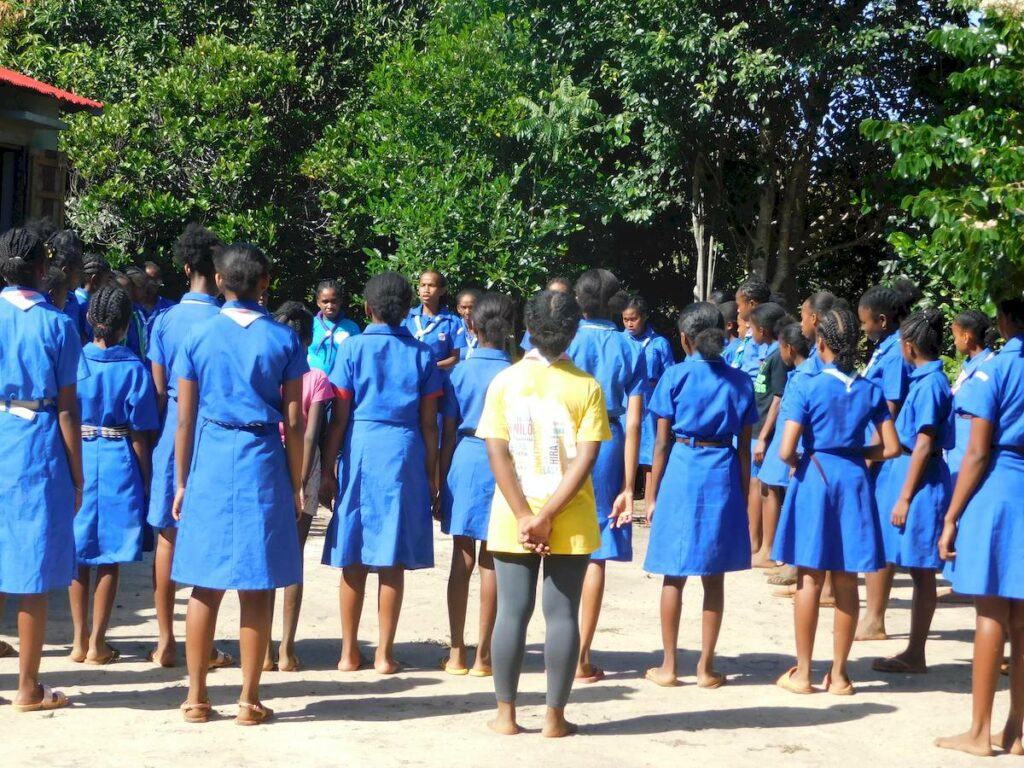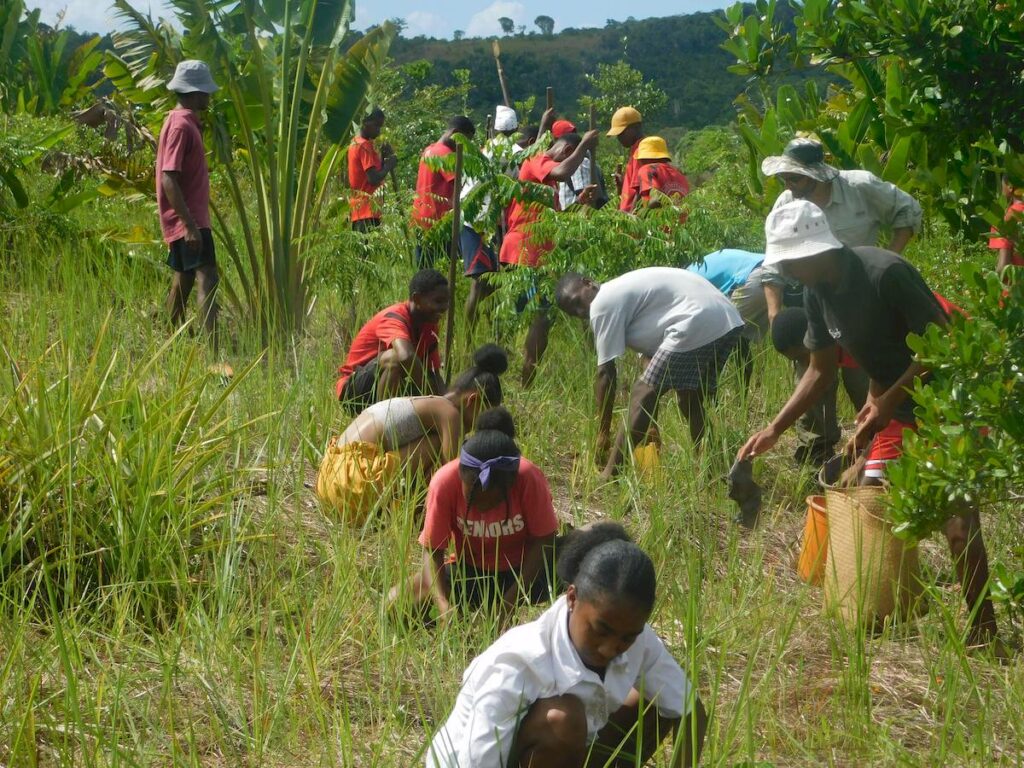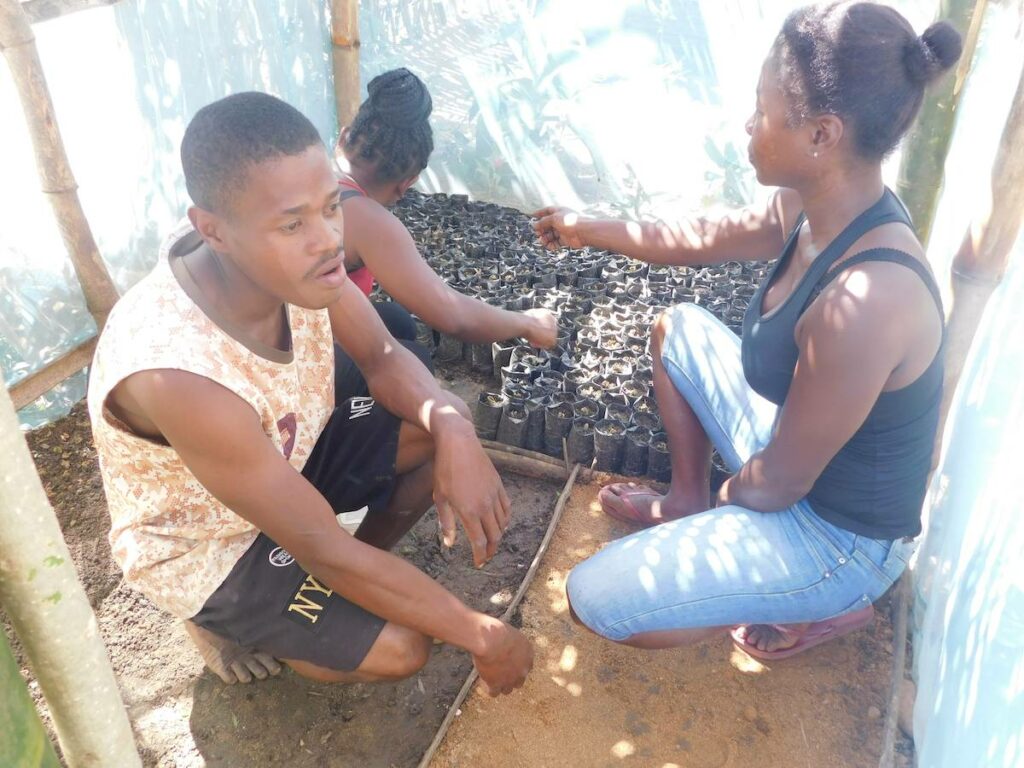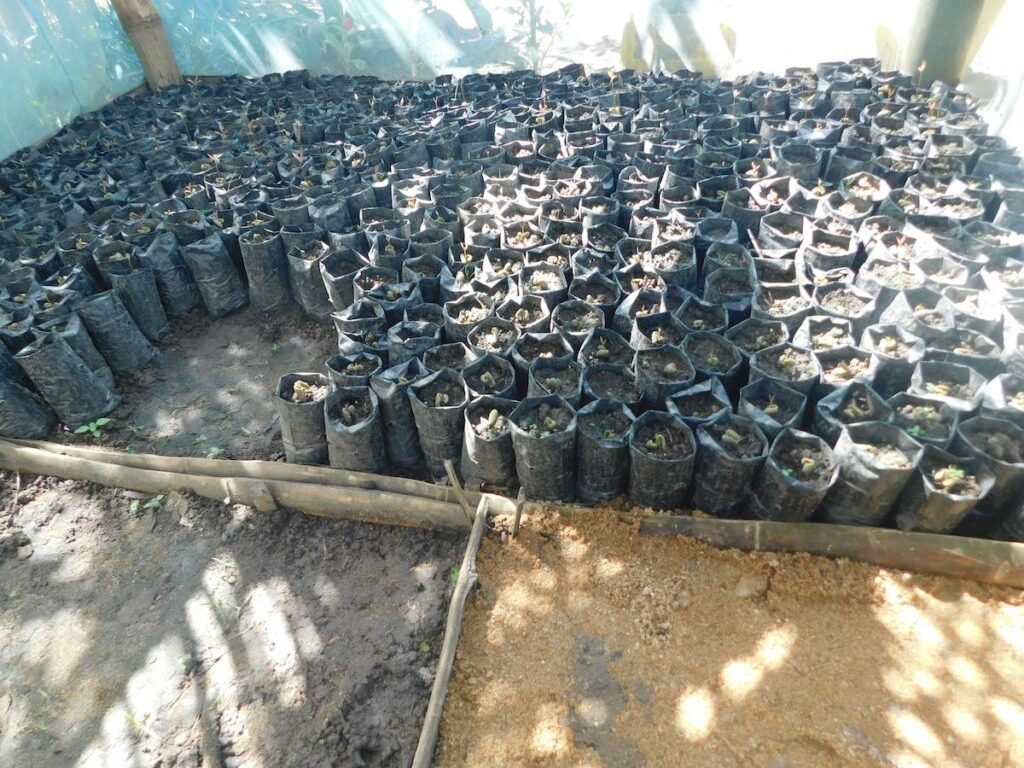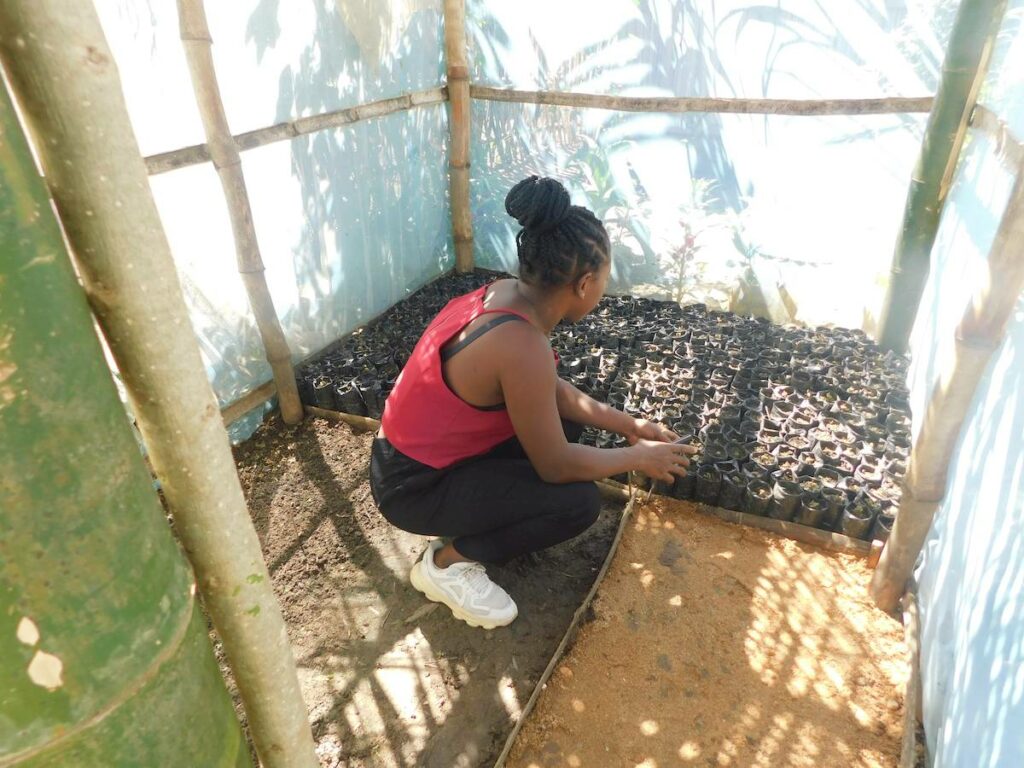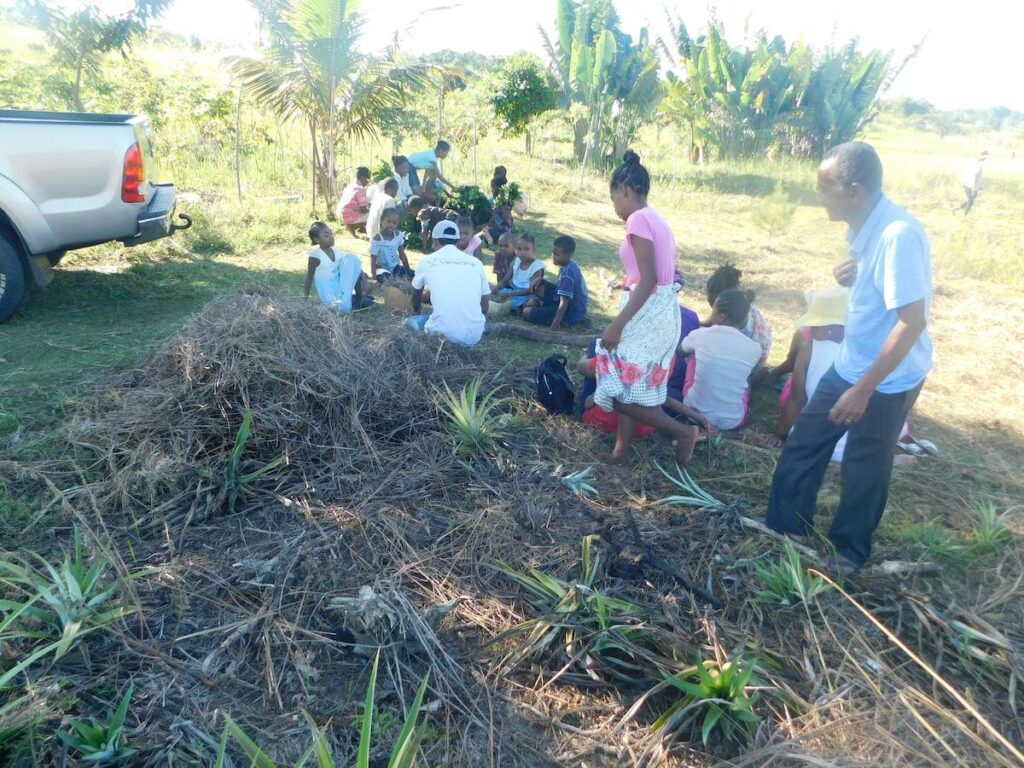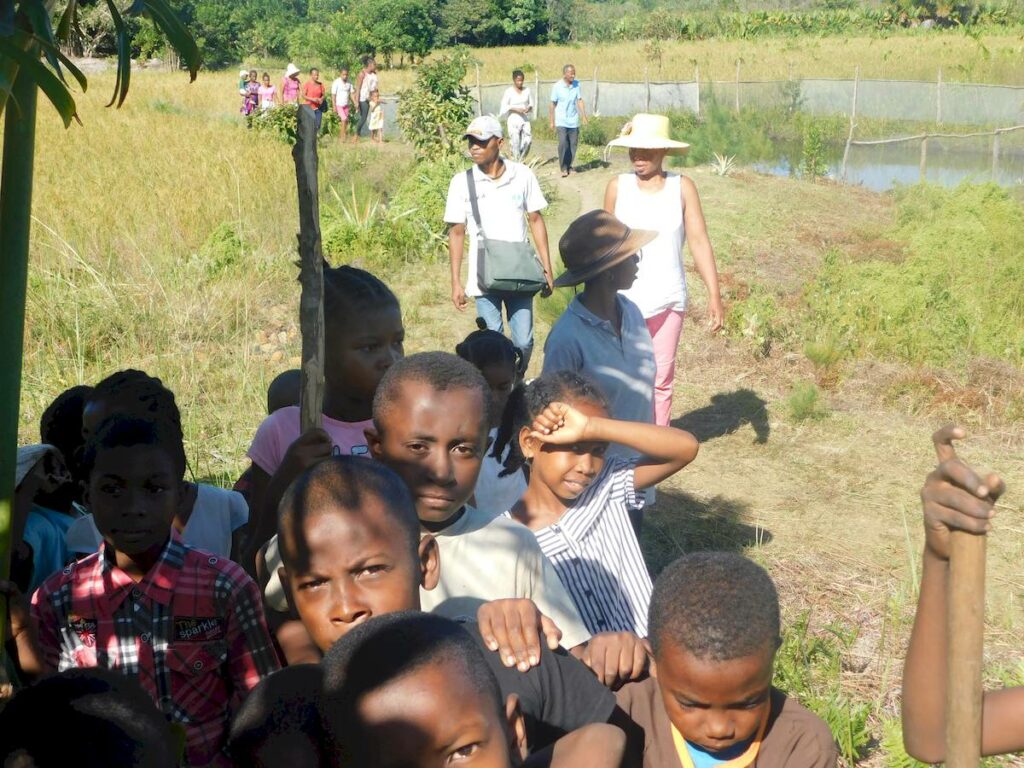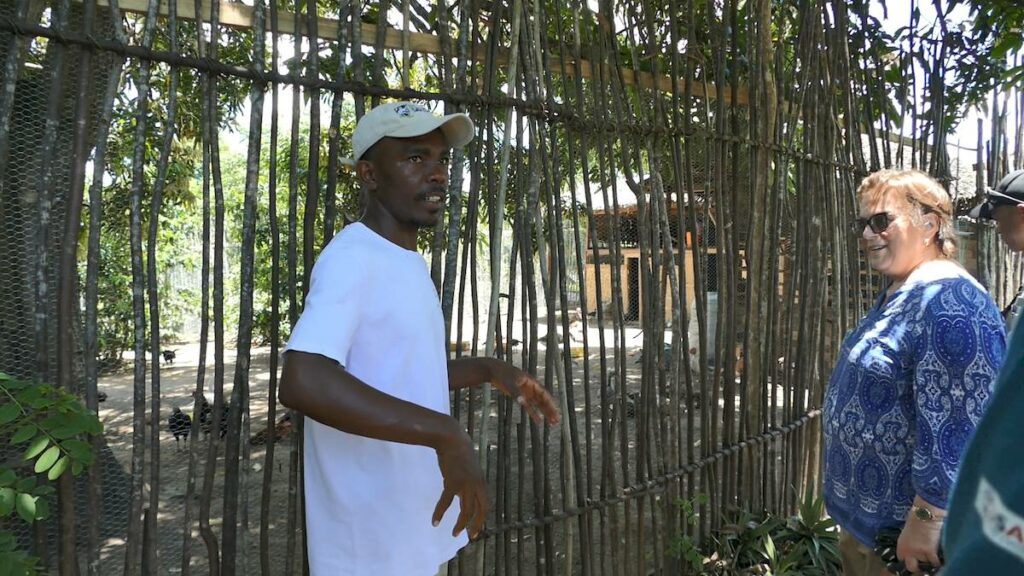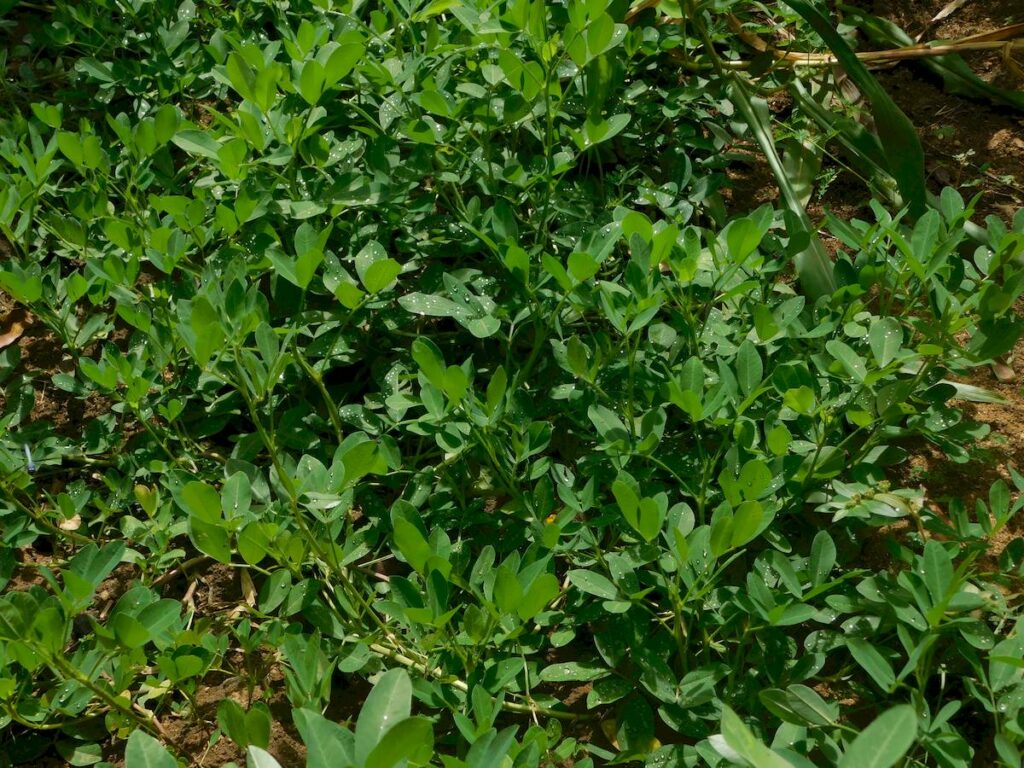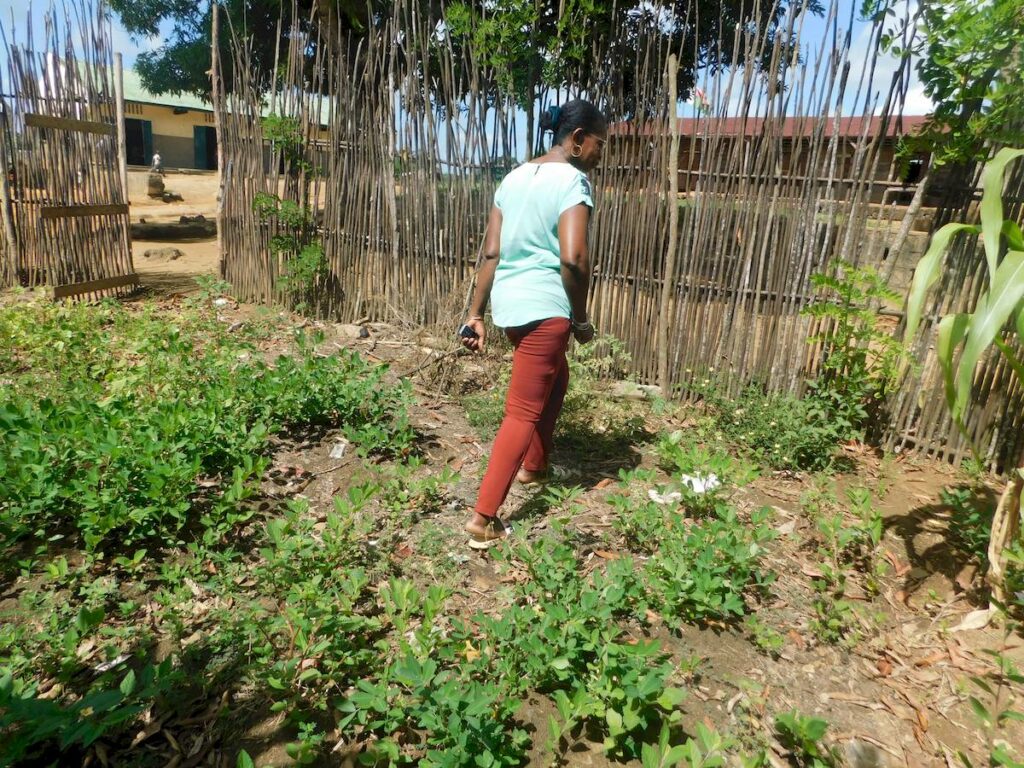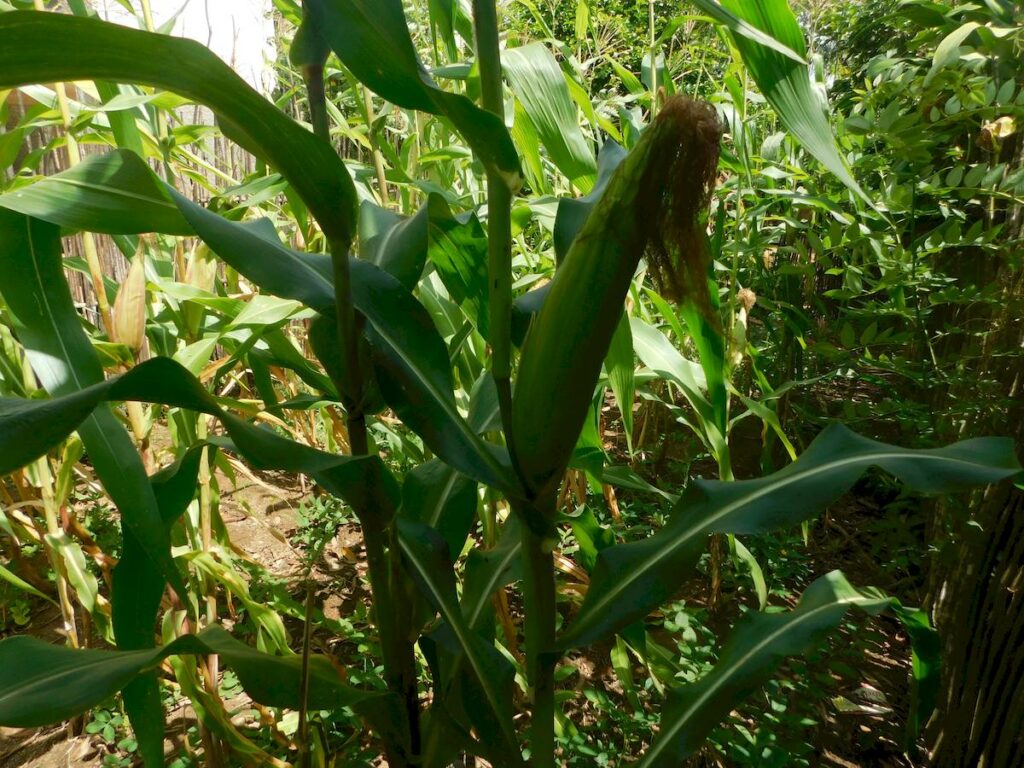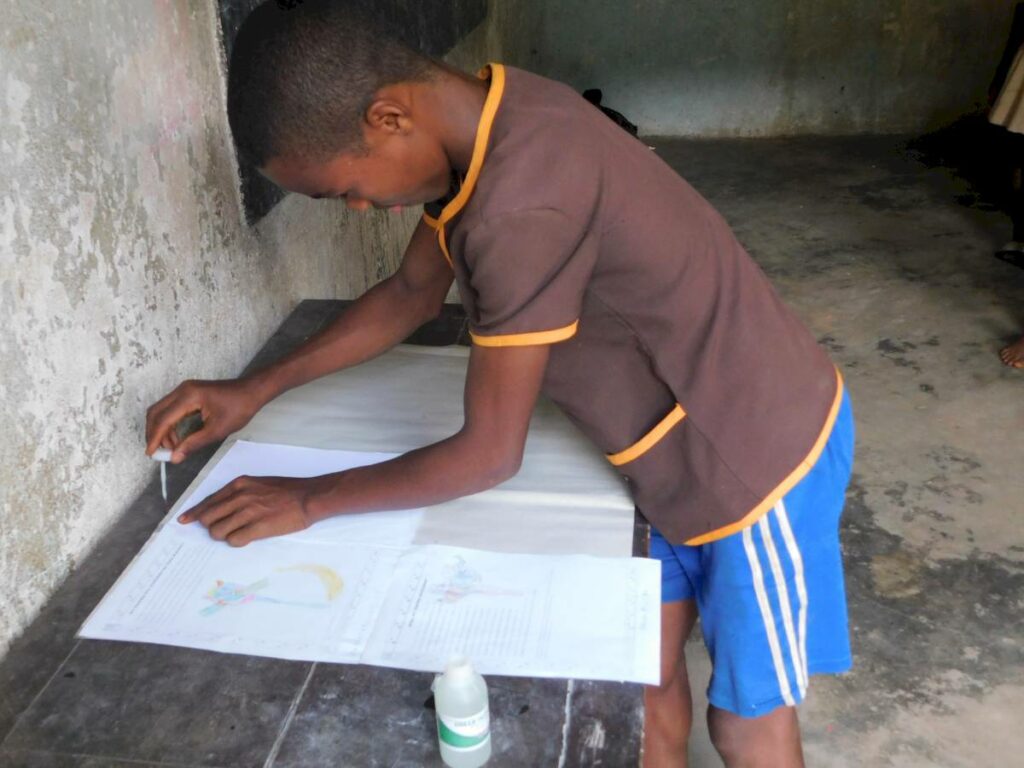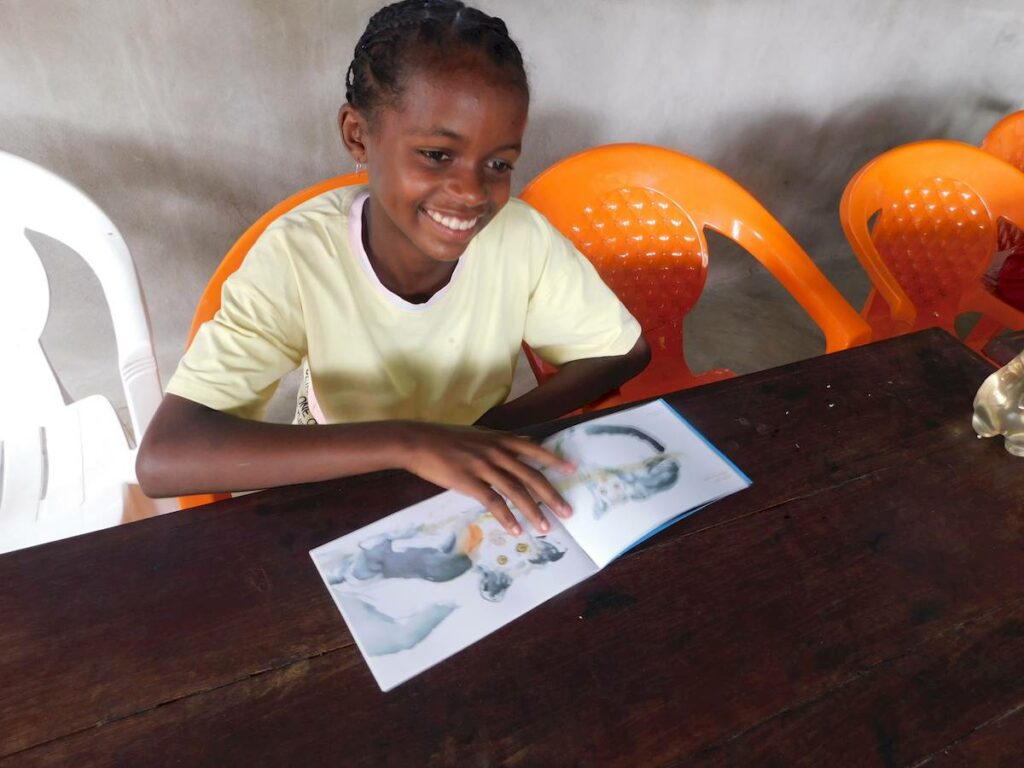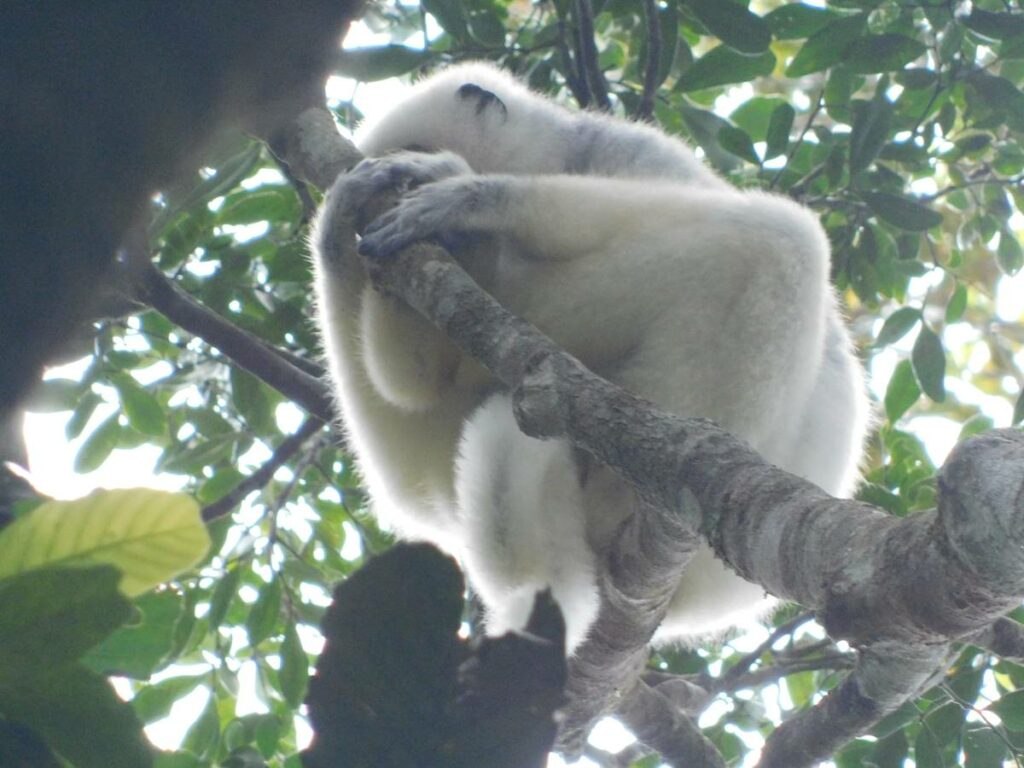It has been a busy 12 months at the school garden and with the help of GEO funding we achieved incredible things. With this blog post, we would like to give you an overview of our latest achievements.
Classroom in concrete
End of September 2022, we completed the construction of the new school building . It is 12 x 6m large and consists of a classroom and an additional room. The base is made of concrete and the roof made of metal, giving extra protection in the stormy cyclone months. To allow air and natural light to enter, we constructed the sites out of a wooden mesh. This helps to keep the school building mold free as well as well-ventilated during hot days. The extra room in the back is made of full concrete with one window. Here, education material can be stored and locked, such as our new library. This library was established within the new school house with the help of private donations.
Library
With the help of private donations, we collected 74 books and games covering different environmental topics in French, Malagasy, English or German language. The books were collected or bought in Germany and Antananarivo and brought to the school garden at the beginning of September. All books are labeled with the school garden logo and have a library number. The new concrete school garden building provides a dry and safe place for the books.
Fish farm
In December 2022, we completed the fish farm. With help from an expert from Andapa, we constructed a 10 x 15 m big pond. The fish now need to grow until the first ones can be caught and used for food. With our additional GoFundMe campaign in December 2022, we could fund fish food for the upcoming eight months. In addition, we planted cassava to produce our own fish food in the future.
Portable solar lamps
Funded by GEO, we acquired eight solar lamps. They are stored within the library and help to facilitate the work of the cook and the guardians after sunset and also lighten up the new school building in the evenings (e.g. for film sessions before dinner).
House for animals
In December 2022, we completed the new animal house. Compared to the old structure, it is more spacious and more solid. It is now a home for goats, ducks, geese and chicken.
Mattresses, blankets and storage box for blankets
In August, we bought eight new mattresses for the bungalows. They are more comfortable to sleep on and can fit at least two people per mattress. On top, we bought warmer blankets. The storage box for the blankets is still missing and will be bought in the second period of the GEO funding.
Beamer and Solar battery
With the help of private donations (GoFundMe) we bought a battery driven beamer. This allows us now to show movies to the kids. Also, this is particularly helpful during workshops when presentations are shown. The school garden does not have electricity. Thus, all devices are charged with solar energy. To allow the direct charging at the school garden, we bought a solar-driven battery to charge beamer, camera and mobile phones. We are very happy about this development, as this increases the independence of the school garden in terms of energy production.
Restoration Training
From the 22nd to the 25th of August 2022 we invited Youssouf from the « Association Mitsinjo » from Andasibe to our school garden. GEO generously funded the 4-day training with him about restoration and sustainable agriculture. We invited participants from different organizations in the Sava Region to join the training. The participants included teachers from CURSA regional University, people from NGOs (AS Matana, Madagascar Green Forest and DLC), the school garden team and additional local participants.
Rice training
In November 2022 the school garden hosted a training with local farmers and school garden members on rice farming. The NGO DLC provided an expert for rice farming and supported all expenses during the 2-day training. The idea of the training was to learn about how to plant rice with a new system. Based on this training, school garden staff can teach other farmers and students in the region. The training consisted of a theoretical part in the classroom and a practical part in the rice field. In the practical part, we learned how to establish a rice nursery and how to sow the rice. Eleven people participated in the training.
Pisciculture training
In November, we hosted a 2-day training on pisciculture. All school garden staff and local farmers were invited for this training. The establishment of the pond was funded by GEO but the training costs were covered by DLC. The expert from Andapa gave an introduction into fish farming and explained the creation of a fish pond step by step.
Nursery training
In December, we did a training on how to establish a tree nursery together with the association Tia Salama. A total of 29 students stayed for 2 days at the school garden.
Examples of visitor groups
In April, we received the girls scouts from the Catholic church in Antanifotsy Sambava. They helped us to fill the pots at the plant nursery and to plant trees. They were very enthusiastic and would like to collaborate with us more in the future.
In May, we planted trees with the Environment Club from Lycee Mixte Sambava.They really enjoy working at the NGSG and collaborating with DLC. After the tree planting session and a joint lunch, James Herrera gave an overview of the DLC work and all their collaborations in the SAVA Region.
Regularly, the school garden team is performing training with farmers, teachers, or kids on how to establish a tree nursery. As part of the training, we prepare new pods with seedlings. After the training, the participants practice with their families in their villages.
At the end of May, we welcomed the association SVPN Mafatoky from Andapa at the school garden. They are an association consisting of farmers from different villages. They heard about our school garden and wanted to visit to find out more about new agricultural techniques and also nature conservation.
It is always a special day, when the parents join their kids on the last day of their school garden program. Generally, one parent per kid joins the visit. The kids are always proud and eager to show to their parents what they have learned. The parents are very interested and enjoy the day at the school garden, which is for them also a break from the work in the fields. Many parents are particularly interested in buying one of the fuelwood-efficient cooking stoves from ADES, which Evrard is also selling at the school garden.
Visit of the US embassy at NGSG
On the 15th of February, the US embassy visited the school garden. They visited the SAVA region, to see the activities done by Duke Lemur Conservation. We were honored,that the ambassador and her team also had time to see the school garden. The US ambassador Pierangelo even mentioned NGSG specifically in one of the interviews that was given after her travels to the SAVA region. You can watch the interview here: https://www.facebook.com/watch/?v=725155359214833
During the embassy’s visit, ambassador Pierangelo and colleagues were introduced to the goals and educational programming of the NGSG, followed by a garden tour. The Ambassador was happy to see the diverse domestic animals and the diversity of plants grown at the garden. The visit finished with a traditional Malagasy lunch, and more time for discussions in smaller groups. You can read the full report of the US embassy’s visit here: https://lemur.duke.edu/ambassador-visit/
NGSG team visiting schools
We also perform visits to schools to help them implement their own garden or fish pont. Thus, we visited the Lycee Mixte in Andapa and helped them to establish a fish pond. DLC supported this work financially. Also, we visited the EPP school in Ambaromiambana and established together with them a garden. Now many different vegetables grow in the garden.
Lemur awareness campaign
As part of the lemur awareness campaign coordinated by DLC-SAVA, Evrard is visiting villages to do workshops to increase lemur awareness. In these workshops, Evrard gives an overview of the importance of forests and lemurs for people. Also, he takes kids on a visit to Marojejy National Park, a rainforest site categorized as a UNESCO World Heritage Site because of its unique biodiversity.
GoFundMe campaign
To complement the GEO budget, we raised around 2000 euros with a GoFundMe in December. With this money, we bought garbage boxes to keep the school garden plastic-free. We also installed a fence around the fish pond to prevent the fish from escaping in case of flooding. Furthermore, we bought additional fish food as our own food production is still developing slowly.
Evrard also used part of the money to install stones around the school garden land. They serve as land markings and their position is officially registered at the city council. Additionally, the GoFundMe money was used to finalize the land certification process. Now, all school garden land has been mapped and is registered.




